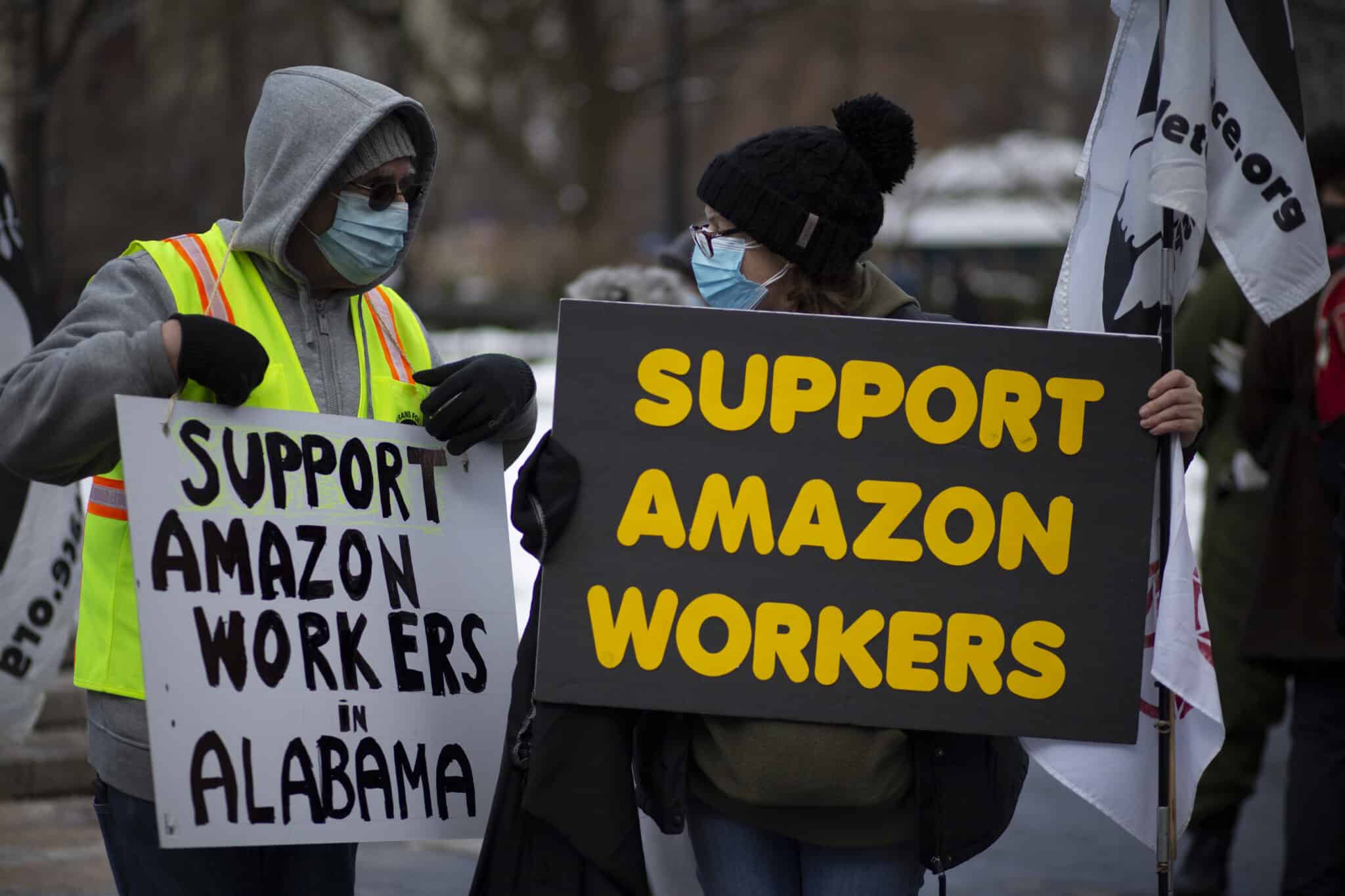Divya Nimmagadda is a student at Harvard Law School.
An NLRB administrative law judge ruled yesterday that the Amazon CEO, Andy Jassy’s, comments to the media regarding unionization efforts at the company were violative of federal labor law. The General Counsel’s brief drew attention to three groups of predictions Andy Jassy has made during several press interviews about the consequences of unionization – that 1) after unionization, employees would lose their “direct relationship” with management, 2) employees would be less empowered since unions involve more bureaucracy, and 3) that employees would be better off without a union.
The ALJ, Brian Gee, found that while “Jassy’s predictions that unionization would change the employee-employer relationship were lawful,” the “20 predictions that employees would be less empowered, would find it harder to get things done quickly, and would be better off without a union… violated Section 8(a)(1) because they went beyond merely commenting on the employee-employer relationship and did not comply with the standards for protected speech established by NLRB v. Gissell Packing Co.” Under labor law, a manager can make predictions regarding the effects of unionization, but the “ prediction must be carefully phrased on the basis of objective fact to convey an employer’s belief as to demonstrably probable consequences beyond his control,” or else it transforms into an “impermissible threat of retaliation.” Gee found that Jassy “offered no objective basis” for his assertions.
Gee ordered Amazon to cease and desist from making such “coercive” statements. He also instructed the company to post at each of its facilities nationwide and distribute electronically notices informing employees of their rights under the NLRA and committing to abstention from future threats and coercion. Amazon has stated that it plans to appeal the ruling to the Board, claiming that “the decision reflects poorly on the state of free speech rights today.”
In recognition of International Workers’ Day yesterday, workers and communities across the globe took to the streets to protest working conditions and protections and demand better from their governments. In Paris, Beirut, Istanbul, Berlin, Manila, Jakarta and many more cities, the protests called attention to poor wages and conditions, environmental harms, lack of social welfare and anti-labor policies. In Los Angeles, the city’s May Day coalition, made up of several labor organizations, organized a powerful march with the theme, “Solidarity is Power: The People United.” The focus of the demonstration was to collect support for “better wages, housing for all, a path to citizenship, the right to strike and…a ceasefire in war-torn areas and an end to all wars.”






Daily News & Commentary
Start your day with our roundup of the latest labor developments. See all
July 11
Regional director orders election without Board quorum; 9th Circuit pauses injunction on Executive Order; Driverless car legislation in Massachusetts
July 10
Wisconsin Supreme Court holds UW Health nurses are not covered by Wisconsin’s Labor Peace Act; a district judge denies the request to stay an injunction pending appeal; the NFLPA appeals an arbitration decision.
July 9
the Supreme Court allows Trump to proceed with mass firings; Secretary of Agriculture suggests Medicaid recipients replace deported migrant farmworkers; DHS ends TPS for Nicaragua and Honduras
July 8
In today’s news and commentary, Apple wins at the Fifth Circuit against the NLRB, Florida enacts a noncompete-friendly law, and complications with the No Tax on Tips in the Big Beautiful Bill. Apple won an appeal overturning a National Labor Relations Board (NLRB) decision that the company violated labor law by coercively questioning an employee […]
July 7
LA economy deals with fallout from ICE raids; a new appeal challenges the NCAA antitrust settlement; and the EPA places dissenting employees on leave.
July 6
Municipal workers in Philadelphia continue to strike; Zohran Mamdani collects union endorsements; UFCW grocery workers in California and Colorado reach tentative agreements.